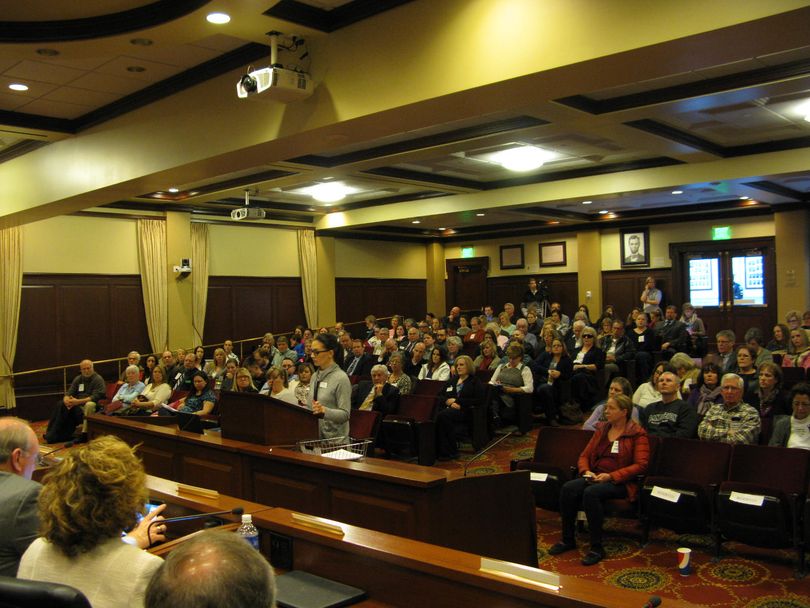Testimony: ‘Close the gap,’ ‘Better off at home,’ ‘Penalty for parents’

More of the testimony from today’s public hearing on health and welfare issues:
Liza Long spoke in favor of SB 1205, the Healthy Idaho Plan for Medicaid expansion. “I’m a mom for a really great kid who has bipolar disorder. … He got treatment and today he is completely managing his illness,” getting great grades in school and soon to take his driver’s license test, she said. “That’s what every single family deserves, they deserve my story, treatment, recovery and hope. … We really, really need these comprehensive services. Forty-one thousand people in Idaho have serious mental illness, and this is the population that would very directly benefit if you can close the gap.” She said, “Mental illness isn’t a choice and it isn’t a character flaw. I urge you to do the right thing for all citizens of Idaho and please close the gap.”
Lindsey Dial, branch manager for ResCare Home Care told the lawmakers, “A person with dementia is better off at home, where they can have a caregiver come in.” She asked them to think about where they'd like their own relatives to receive care. With low reimbursement rates, she said, “I have a caregiver who is living out of her car.”
Several foster parents shared heart-wrenching stories of the young children they cared for being pulled suddenly from their homes without explanation, leaving both the kids and families stunned. Andrew Serre of Boise said of his young foster son, “It was very difficult for him to be placed in the hands of a stranger, to be taken to a strange place.” Cricket Syes of Meridian, who was a foster child herself growing up, fought tears as she told the committee, "I have effects from being that child left in limbo."
Jim Baugh, executive director of Disability Rights Idaho, praised the lawmakers for holding the hearing. “This is a really great practice and democracy in action,” he said. “I’m very happy that you continue to do this.” He said people in the insurance gap who suffer from severe and persistent mental illness need more than primary care, and the same goes for people with disabilities that prevent them from working.
Lauren Necochea of Idaho Voices for Children said, “The coverage gap carries a penalty for parents compared to childless Idahoans.” That’s because a low-income childless person might earn enough to qualify for subsidized health insurance through Idaho’s state insurance exchange, but with the same income and a larger family size that includes children, the income would fall below minimum levels for eligibility. “We have a situation in Idaho today where the childless low-wage worker gets assistance with medical insurance, and the parent with children doesn’t.”
